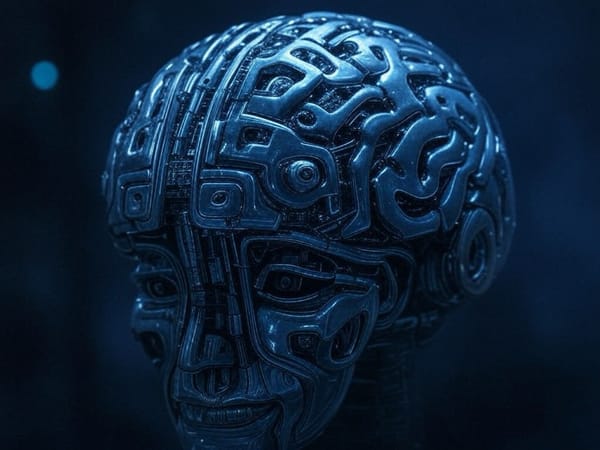Middle East AI Ethics, ChatGPT-5, & AI as CEOs 🌍🤖

Hello Human,
Introduction
Welcome to today's edition of Human Query, your daily source for the latest insights into the world of artificial intelligence. Today, we delve into ethical AI challenges in the Middle East, groundbreaking advancements with ChatGPT-5, the potential for AI to replace CEOs, OpenAI's deep research capabilities, and the revolutionary impact of AI in medical diagnosis. Let's explore these fascinating developments together.
Today's Insights
-
Ethical AI Challenges for Middle Eastern Businesses
The Middle East's rapid adoption of AI technologies, such as ChatGPT, brings significant benefits but also raises ethical and operational challenges. One major concern is the inherent bias in AI training data, which can perpetuate stereotypes and underrepresent minority viewpoints. AI models trained predominantly on English data might struggle with Arabic, reinforcing gender or racial biases. Additionally, AI hallucinations, as seen with Google’s chatbot Bard, pose risks, while cybersecurity threats like deepfakes complicate AI integration. Experts suggest businesses adopt a multi-pronged approach, including understanding strategic stakes, conducting thorough risk assessments, establishing clear AI ethics codes, upskilling the workforce, and addressing trust and cultural concerns. -
What to Expect from ChatGPT-5
OpenAI's upcoming ChatGPT-5 is set to transform AI from digital assistants to highly capable colleagues. CEO Sam Altman envisions AI as proactive partners that deeply understand users, anticipate needs, and offer creative collaboration. This advanced AI aims to seamlessly integrate into daily workflows, providing subtle suggestions and proactive assistance. However, achieving this vision involves significant challenges, particularly concerning privacy and AI bias. Ensuring data protection and ethical use is crucial to maintaining user trust. If successful, ChatGPT-5 could enhance productivity and creativity by offering deep knowledge, proactive solutions, and constructive feedback. -
When AI Can Replace CEOs
Training AI to function as a CEO involves complex datasets representing common behaviors of thousands of CEOs. This process requires understanding general capabilities and specific organizational needs, using reinforcement learning with human feedback. Unlike humans, AI models rely on pattern recognition and rule-based learning, limiting their ability to generalize concepts. However, recent advancements like multi-learning for compositionality show promise in teaching AI to apply concepts in new settings. This approach could enhance AI's ability to emulate human thinking, making it potentially capable of decision-making roles like a CEO. Continued research is necessary to bridge the gap between AI's current capabilities and the nuanced understanding required for executive functions. -
OpenAI Developing Advanced AI Models with Deep Research Capabilities
OpenAI is working on a project codenamed "Strawberry," aimed at enhancing AI models with advanced reasoning and deep research capabilities. This technology would enable AI to autonomously plan for complex tasks, marking a significant leap from current capabilities. Early demos, previously known as Q*, showcased the AI's ability to answer difficult science and math questions. Although specific details about Strawberry's development stage remain scarce, the goal of enabling deep research suggests a future where AI can perform sophisticated, autonomous analysis and problem-solving, pushing the boundaries of AI's potential. -
AI's Potential to Revolutionize Medical Diagnosis
AI holds tremendous potential to revolutionize medical diagnosis by quickly and accurately analyzing vast amounts of medical data. This capability can identify patterns and anomalies that might be missed by human practitioners, leading to earlier and more accurate diagnoses and improved patient outcomes. Additionally, AI can assist in personalized medicine by tailoring treatments to individual patient profiles based on their genetic and medical history. Integrating AI in medicine requires careful consideration of ethical and practical issues, such as data privacy and bias in medical data. Nevertheless, the promise of AI in enhancing diagnostic processes represents a significant advancement in the medical field.
Trending GPTs
-
Slang Words
Convert plain English to slang, including Canada, America, Britain, and Australia.
Explore Slang Words -
Vintage Prompt
Old computer terminal simulator.
Explore Vintage Prompt -
GPT Co-Founder
A founder's virtual companion for decision-making and idea validation.
Explore GPT Co-Founder -
Environmental Design
Environmental material plan, design, and construction specialist.
Explore Environmental Design -
Undiscovered America TV Explorer's Guide
Your go-to guide for hidden US travel gems.
Explore Undiscovered America TV Explorer's Guide
Prompt of the Day
Today’s creative prompt invites you to explore an alternate universe:
You are a historian in an alternate universe where the Roman Empire never fell. Write a report detailing the advancements in technology, society, and culture in this timeline. Describe the influence of a continuous Roman rule on the modern world.
That's all for today's entry. Stay tuned for tomorrow's insights.
Stay curious, Human.




